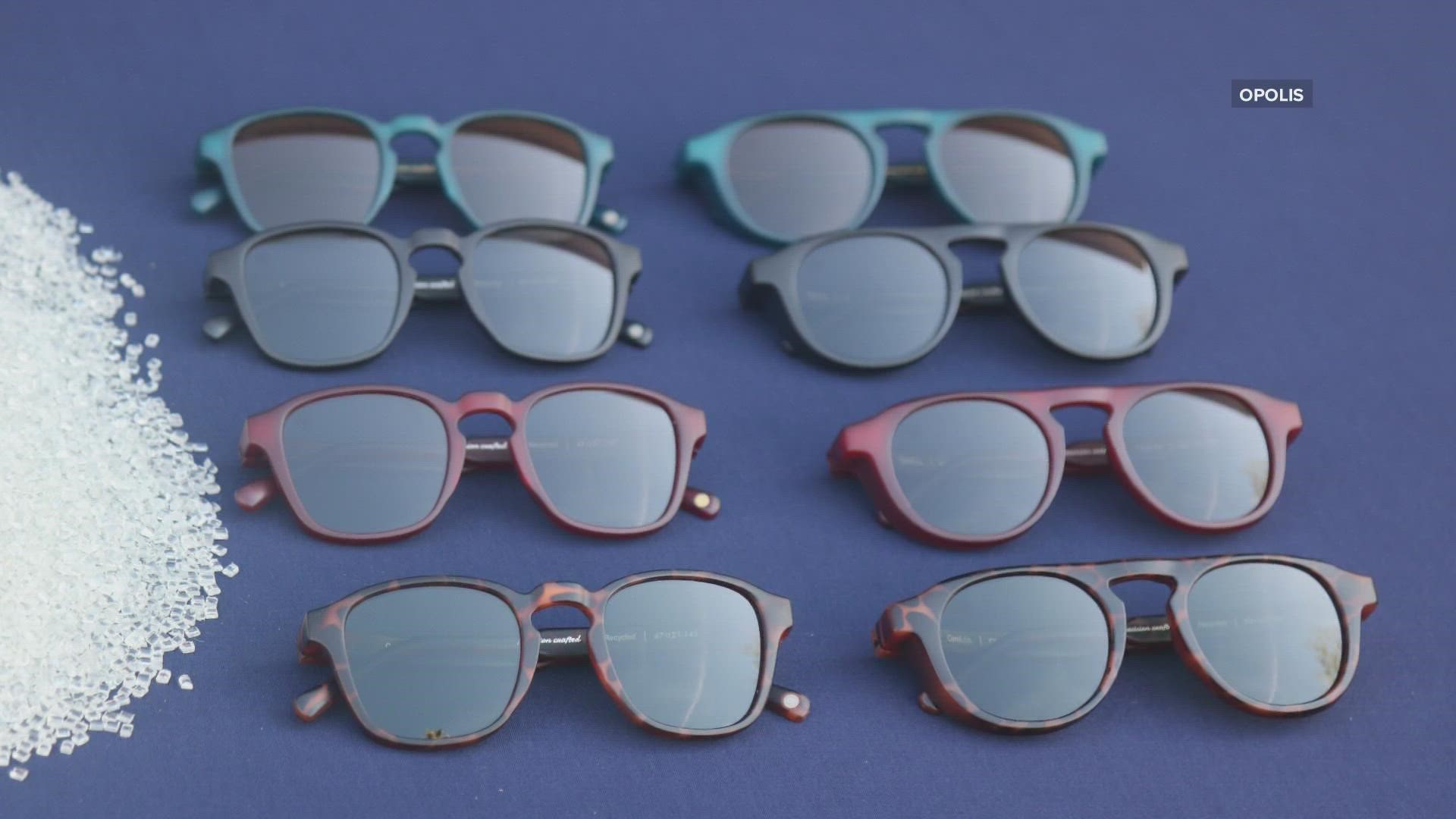MAINE, Maine — It might be easy to look at the problem of global pollution and see it as being too much – too overwhelming, too hard to fix.
But for one man who grew up in Kennebunk, taking on that challenge has propelled him to not only launch a small company but possibly change the way we re-use the plastic filling up our landfills.
James Merrill grew up in Maine and was outside – all the time.


"Being able to ski and surf our mountains and oceans, it just really instilled this love for nature. And that love for nature sparked my love for human interaction. And I think those go hand in hand," he recalled.
James' work as a government contractor took him to remote – and often impoverished – countries. What he saw there made an impact.
"It’s within that line of work that I was noticing how the plastic pandemic was actually impacting communities that had to deal with it on a day to day basis …and the environment that they were living in," he added.
According to James, out of the 500 billion plastic bottles produced every year, less than 10% get recycled. And plenty of those bottles wind up hugging the coastline of countries in Africa, the Middle East, and Asia.
The images of plastic landfills helped him to begin to plan his next steps.
"I really wanted to focus in on one thing. If we could harness a way to help these communities with this plastic – and focus on the plastic bottle – that’s what I wanted to narrow in on," James said.
Focusing on all those plastic bottles meant figuring out a way to collect them, sort them, recycle them, and most importantly re-use most of the bottles to make a product. He calls this the ‘circular plastic economy.'
"We’re so inundated by negative data around what’s happening with our climate," James said. "I wanted to bring a message of hope and optimism to what we can do as a collective around something as simple as sunglasses on how to help our planet and the communities most impacted by what’s going on."
He launched Opolis Optics – a sunglasses company with two lines of eyewear – one made from plant-based materials, and the other made from all those recycled bottles.
The supply chain begins with folks who live alongside these landfills, often in marginalized communities. James refers to them as advocates.
"These advocates, we teach them that we can treat plastic – this stuff that they’re surrounded by – as a commodity. And this commodity can actually help the environment that they’re living in, and their pockets as well," he said.
The advocates earn a living collecting and sorting the bottles, which are then sent off to be sorted, cleaned, heated, and ground into pellet form.
"A lot of other companies are using a blend of different things – fishing line, shampoo bottles, other things. But we’re focusing on using that one bottle that we’re finding in the ocean or landfill and turning that into a product," James said.
The ‘Stoked’ collection, which will debut next month, is trademarked and has a patent pending for the plastic blend that they came up with – working with the University of Southern Maine and their STEM lab.
James is eager to collaborate with Maine partners. "That’s where the excitement comes. And that’s where we bring in the state of Maine. How can Maine support this and then actually bring it here to make an overall global impact?" he asked.
He has been building the supply chain for his product for two years. He feels he’s bringing it to market at a time when consumers are becoming more aware of the impact of their purchases.
If you define sustainability without those who provide the materials, James said, "then you're not really, you're not participating in that circular plastic supply chain.
Right now, Opolis Optics is all about sunglasses. But James sees his idea of a ‘circular plastic economy’ as something that could impact all kinds of products.
"What I keep telling people and what I get most excited about is educating the plastic industry. Right?" he said. "There’s so many amazing materials out there that can benefit both the environment and communities. We need to start using them. There needs to be a responsibility by corporations, by brands, by organizations to use these materials. And I want to be that person that pushes it. I wanna be that person that drives that competition. Right? Because the more competition, the more volume, the more change."
"I believe in the human spirit, I believe in culture, I believe in that if we can do this as a collective planet, no matter where we’re from, ethnicity or gender, I feel like this is what we need to do to actually uh … conserve our planet," he added. "I’m hoping that Opolis, optimism, opportunity. That’s what I want it to be associated with.
I asked James if he considers himself an optimist. Without hesitation, he answered, "100%. I wouldn't be doing this if I wasn’t an optimist. I believe in hope. For a lot of reasons."
The Opolis line of plant-based sunglasses is already on the market, and the Stoked Collection made from recycled plastic will be available soon.

